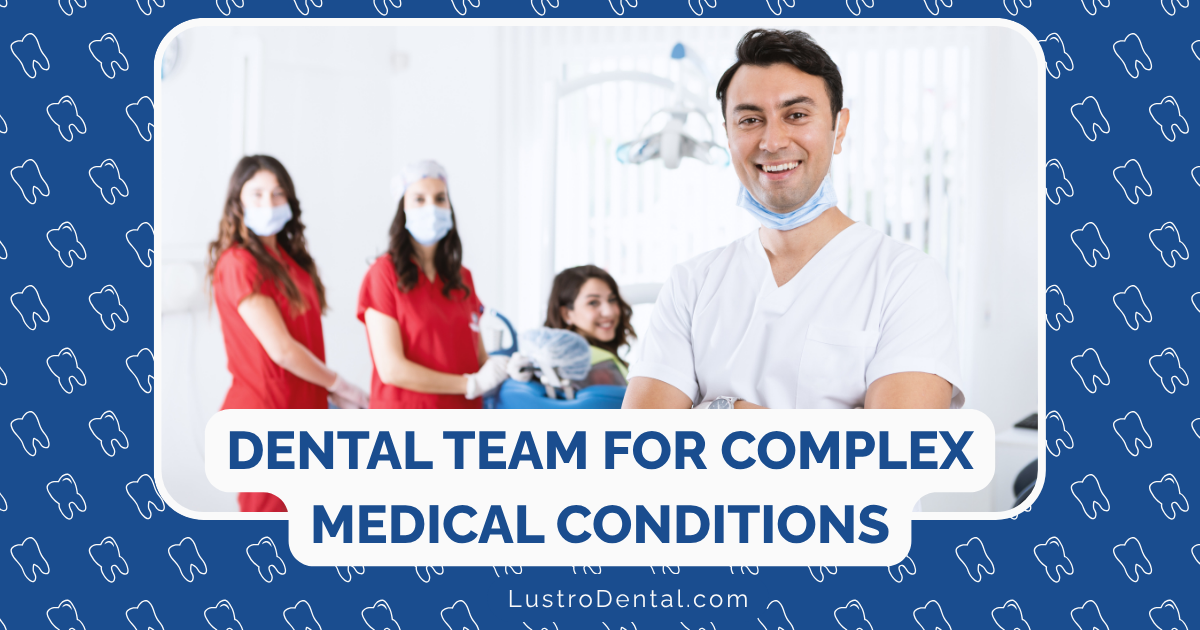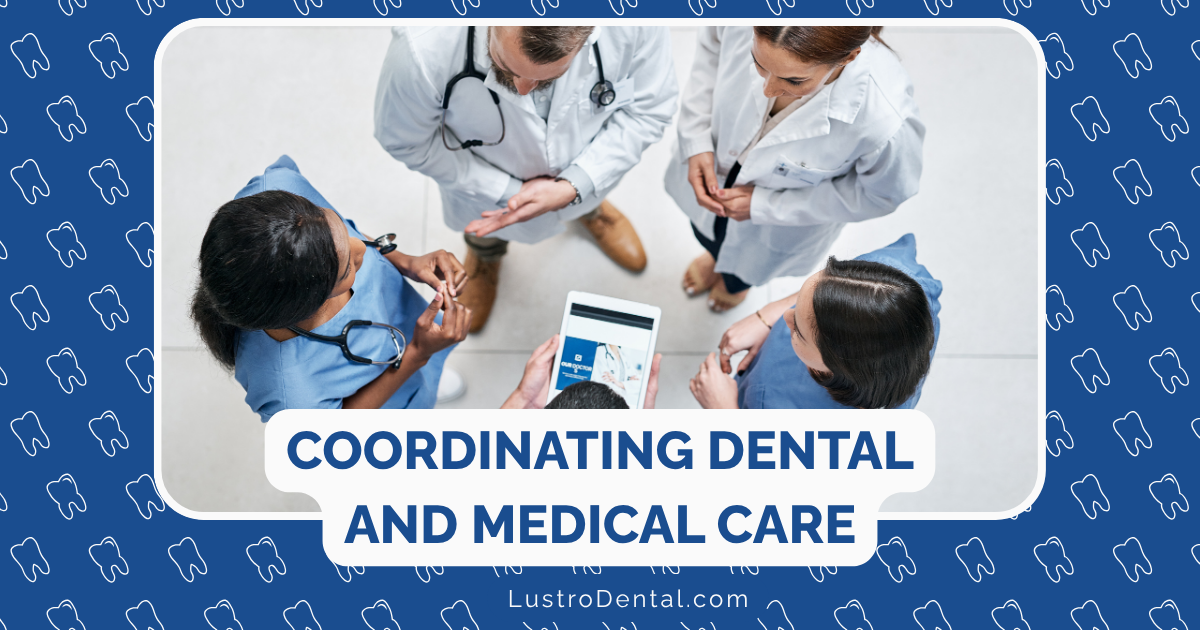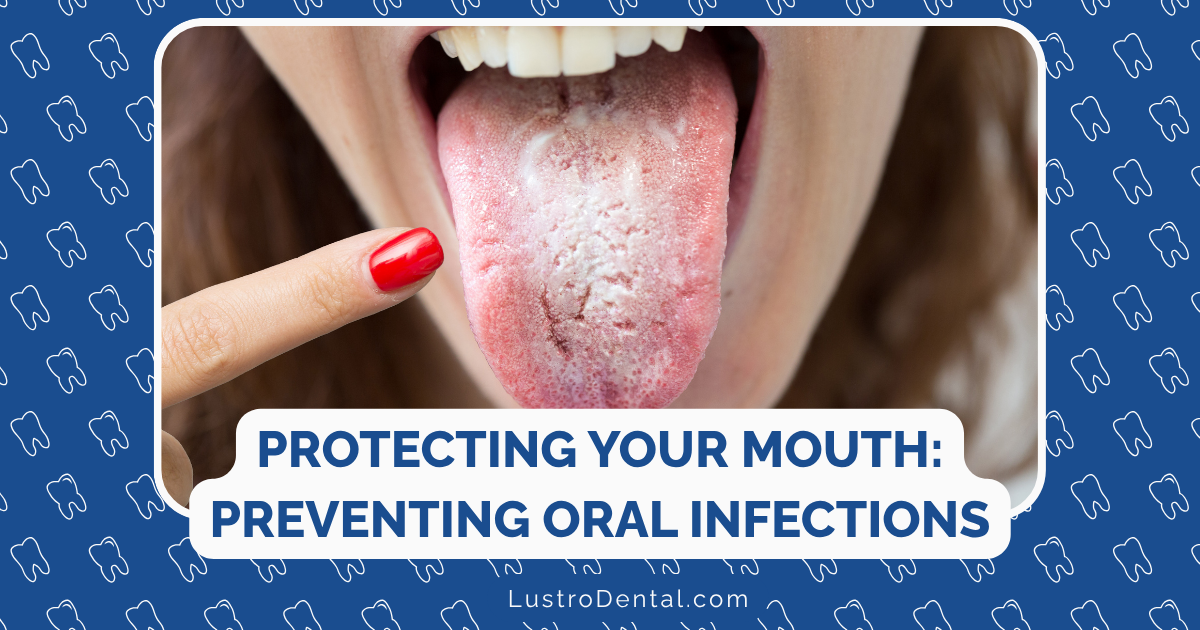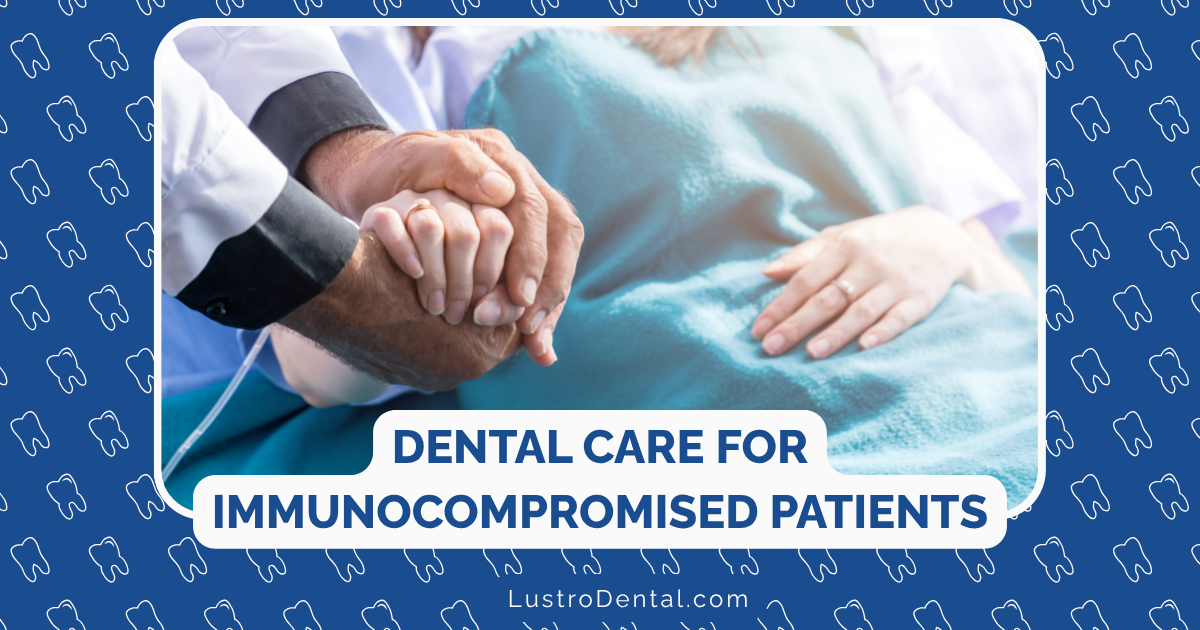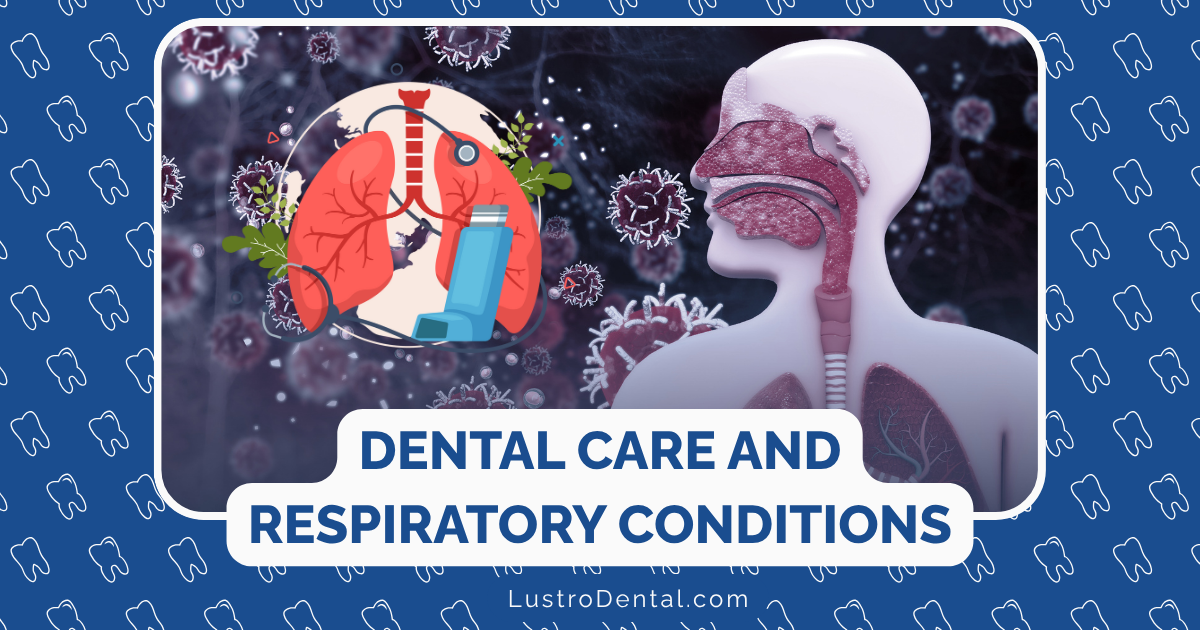Medication Side Effects on Oral Health: Managing Dry Mouth and Other Concerns
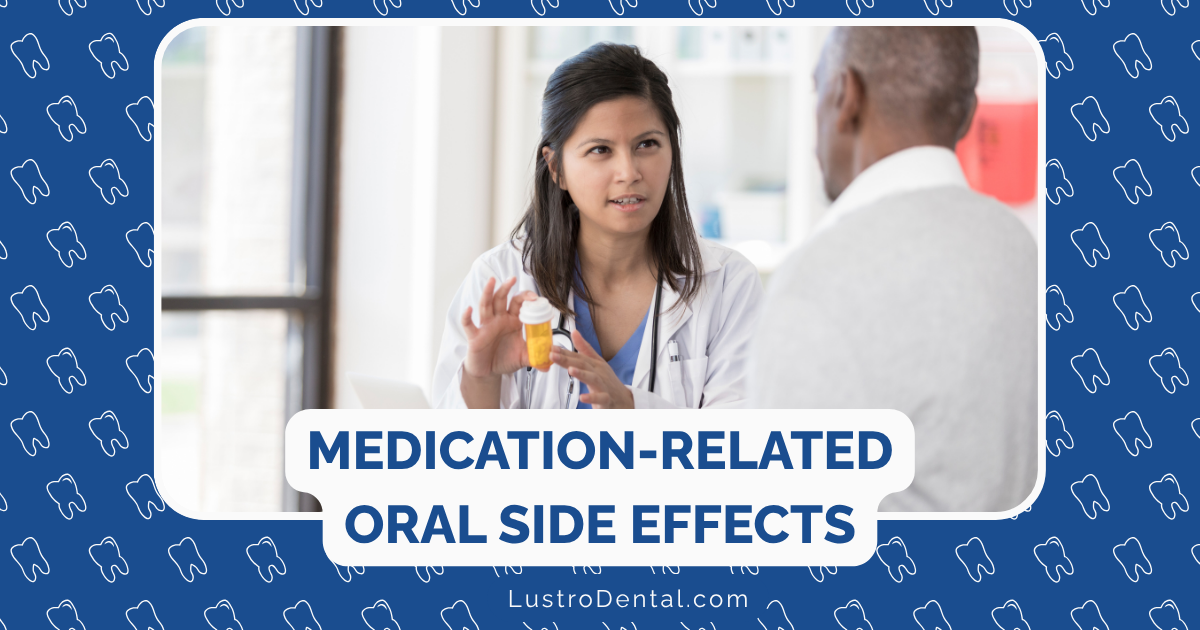
When we think about medication side effects, we often focus on drowsiness, nausea, or digestive issues. Yet some of the most common—and often overlooked—side effects impact our oral health. From the discomfort of dry mouth to changes in gum tissue and altered taste, medication-related oral side effects can significantly affect quality of life and long-term dental health.
As someone who’s advocated for dental health education for years, I’ve seen how understanding and proactively managing these side effects can make a tremendous difference. Whether you’re taking medications for a short time or managing chronic conditions with long-term prescriptions, knowing how to protect your oral health is essential.
The Scope of the Issue: How Common Are Medication-Related Oral Side Effects?
The statistics tell a compelling story about how widespread these issues are:
- According to the American Family Physician, approximately 59% of the U.S. population takes at least one prescription medication, with 15% taking five or more.
- Over 500 medications list dry mouth (xerostomia) as a potential side effect.
- Xerostomia affects 10% to 33% of the general population, with higher rates (27% to 32%) among those taking medications.
- Among adults over 65 years, xerostomia affects approximately 30%, increasing to 40% for those over 80.
- Gingival hyperplasia (gum overgrowth) occurs in 20% to 57% of patients taking phenytoin, 5% to 20% taking diltiazem, and 2% to 3% taking amlodipine.
- Taste alterations are reported in 1% to 10% of patients taking certain medications like metformin.
These numbers highlight that medication-related oral health issues aren’t rare exceptions—they’re common challenges that many of us will face at some point.
Dry Mouth (Xerostomia): The Most Common Medication Side Effect
What Causes Medication-Induced Dry Mouth?
Saliva plays a crucial role in oral health by:
- Neutralizing acids that cause tooth decay
- Washing away food particles and bacteria
- Aiding in digestion by beginning the breakdown of food
- Helping with taste and swallowing
- Providing minerals that strengthen tooth enamel
- Fighting infections through antimicrobial properties
Many medications reduce saliva production by affecting the salivary glands or the nervous system signals that stimulate these glands.
Medications Commonly Associated with Dry Mouth
Several classes of medications are known for causing xerostomia:
Antihistamines and Decongestants
- Diphenhydramine (Benadryl)
- Loratadine (Claritin)
- Cetirizine (Zyrtec)
- Pseudoephedrine (Sudafed)
Antidepressants
- Selective serotonin reuptake inhibitors (SSRIs) like fluoxetine (Prozac)
- Tricyclic antidepressants like amitriptyline
- Monoamine oxidase inhibitors (MAOIs)
Antihypertensives (Blood Pressure Medications)
- Diuretics like hydrochlorothiazide
- ACE inhibitors like lisinopril
- Beta-blockers like metoprolol
Other Common Culprits
- Antipsychotics
- Anti-Parkinson’s medications
- Muscle relaxants
- Opioid pain medications
- Some anti-anxiety medications
- Certain bronchodilators used for asthma and COPD
Dr. Sarah Johnson, a dentist specializing in geriatric oral health, notes: “The risk of dry mouth increases significantly when patients take multiple medications—a condition known as polypharmacy. I often see patients taking 5-10 medications, with several having dry mouth as a potential side effect. The combined impact can be substantial.”
Consequences of Chronic Dry Mouth
When left unmanaged, xerostomia can lead to:
- Increased risk of tooth decay: Without saliva’s protective effects, cavities can develop rapidly, particularly at the gumline and around existing dental work.
- Gum disease: Reduced saliva means more bacterial plaque accumulation, leading to gingivitis and periodontitis.
- Oral infections: Including candidiasis (thrush) and bacterial infections.
- Difficulty speaking, chewing, and swallowing: Making meals less enjoyable and potentially affecting nutrition.
- Altered taste: Diminishing the pleasure of eating and potentially leading to poor nutrition.
- Halitosis (bad breath): As bacteria proliferate in the dry environment.
- Cracked lips and sores: Making everyday activities uncomfortable.
- Sleep disturbances: As dryness causes discomfort during the night.
Beyond Dry Mouth: Other Medication-Related Oral Side Effects
Gingival Hyperplasia (Gum Overgrowth)
This condition involves excessive growth of gum tissue, sometimes to the extent that it covers portions of the teeth.
Common Medications Causing Gingival Hyperplasia:
- Anticonvulsants: Particularly phenytoin (Dilantin), affecting up to 50% of users
- Calcium channel blockers: Including nifedipine (20% of users experience overgrowth), amlodipine, and diltiazem
- Immunosuppressants: Especially cyclosporine, used after organ transplants
Impact on Oral Health:
- Creates spaces where bacteria can hide, making oral hygiene difficult
- Increases risk of gum disease and tooth decay
- Can cause pain, bleeding, and difficulty chewing
- May create cosmetic concerns affecting self-confidence
Taste Alterations (Dysgeusia)
Changes in taste perception can range from reduced taste sensitivity to unpleasant tastes (often described as metallic or bitter).
Common Medications Affecting Taste:
- Cardiovascular drugs: ACE inhibitors, beta-blockers
- Anticonvulsants: Carbamazepine, phenytoin
- Antibiotics: Metronidazole, clarithromycin
- Antifungals: Terbinafine
- Chemotherapy drugs: Many affect taste cells that regenerate quickly
Impact on Oral and Overall Health:
- Reduced enjoyment of food
- Potential nutritional deficiencies as patients avoid certain foods
- Weight loss in severe cases
- Increased use of salt or sugar to compensate, potentially worsening other health conditions
Oral Lesions and Reactions
Some medications can trigger reactions in the oral tissues, leading to inflammation, ulcers, or lesions.
Common Medications Causing Oral Lesions:
- NSAIDs: Ibuprofen, aspirin
- Antibiotics: Sulfonamides, tetracyclines
- Chemotherapy agents: Causing mucositis (painful inflammation and ulceration)
- Bisphosphonates: Used for osteoporosis, can cause osteonecrosis of the jaw in rare cases
Impact on Oral Health:
- Pain and discomfort
- Difficulty eating and speaking
- Increased risk of secondary infections
- Potential long-term tissue damage in severe cases
Management Strategies for Medication-Induced Oral Side Effects
Managing Dry Mouth
Daily Hydration Practices:
- Sip water throughout the day (carrying a water bottle)
- Use a humidifier at night to add moisture to the air
- Breathe through your nose rather than your mouth when possible
- Limit caffeine and alcohol, which can worsen dehydration
Saliva Stimulation:
- Chew sugar-free gum containing xylitol (which also helps prevent cavities)
- Suck on sugar-free mints or lozenges
- Consider over-the-counter saliva substitutes like Biotène, XyliMelts, or Mouth Kote
- Try products specifically formulated for dry mouth, such as special mouthwashes and toothpastes
Dietary Adjustments:
- Avoid salty, spicy, acidic, or very dry foods that may irritate a dry mouth
- Choose soft, moist foods that are easier to chew and swallow
- Moisten dry foods with broths, sauces, or healthy oils
- Avoid sugary foods and beverages that increase cavity risk
Professional Interventions:
- Prescription saliva stimulants (sialagogues) like pilocarpine (Salagen) or cevimeline (Evoxac) for severe cases
- Fluoride treatments to strengthen enamel and prevent decay
- More frequent dental checkups (every 3-4 months rather than every 6)
- Prescription-strength fluoride toothpaste (containing 5000 ppm fluoride)
Managing Gingival Hyperplasia
Enhanced Oral Hygiene:
- Meticulous brushing and flossing to reduce plaque accumulation
- Use of interdental brushes to clean between swollen gum tissue
- Antimicrobial mouthwashes to control bacteria
- Professional cleanings every 3 months
Professional Interventions:
- Medication adjustment: Discussing with your physician whether alternative medications might be available
- Periodontal treatment: Deep cleaning to remove plaque and calculus below the gumline
- Surgical options: Gingivectomy (removal of excess gum tissue) in severe cases
- Laser therapy: Less invasive approach to removing excess tissue
Managing Taste Alterations
Practical Approaches:
- Experiment with different flavors, spices, and textures
- Use plastic utensils if metal ones cause a metallic taste
- Practice good oral hygiene to minimize bad tastes from oral bacteria
- Stay hydrated to help rinse away unpleasant tastes
Dietary Strategies:
- Enhance foods with herbs, olive oil, or marinades
- Try tart foods and beverages, which may stimulate taste
- Experiment with temperature variations (some foods taste better cold, others warm)
- Work with a dietitian to ensure nutritional needs are met despite taste changes
Medical Interventions:
- Zinc supplements: May help with taste in some cases (consult your doctor)
- Medication adjustment: When possible, if taste changes significantly affect quality of life
- Artificial saliva products: Can help with taste perception in cases of dry mouth
Preventive Dental Care for Medication Users
Enhanced Home Care Routines
Brushing:
- Use a soft-bristled toothbrush to avoid irritating sensitive tissues
- Brush for a full two minutes, twice daily
- Consider an electric toothbrush if dexterity is an issue
- Use fluoride toothpaste formulated for dry mouth when applicable
Interdental Cleaning:
- Daily flossing or use of interdental brushes
- Water flossers can be especially helpful for those with gingival hyperplasia
- Floss holders or picks if dexterity is limited
Rinses and Supplemental Products:
- Alcohol-free antimicrobial mouthwashes (alcohol can worsen dry mouth)
- Fluoride rinses for additional protection
- Xylitol products to help prevent decay
Professional Dental Care
Appointment Frequency:
- Increase dental visits from the standard twice yearly to every 3-4 months if experiencing significant medication side effects
- Establish a baseline with your dentist when starting new medications known to affect oral health
Preventive Treatments:
- In-office fluoride applications
- Dental sealants to protect vulnerable tooth surfaces
- Professional cleanings to remove plaque and calculus
Monitoring:
- Regular oral cancer screenings (especially important for those with chronic dry mouth)
- Periodontal evaluations to catch early signs of gum disease
- Tracking of any oral changes that coincide with medication changes
Coordinating Care: The Medical-Dental Connection
Communicating with Healthcare Providers
Information to Share with Your Dentist:
- Complete, updated medication list, including over-the-counter medications and supplements
- Any changes to medications or dosages since your last visit
- Specific oral symptoms you’re experiencing
- Timing of symptoms in relation to medication use
Information to Share with Your Physician:
- Severity of oral side effects and their impact on quality of life
- Dental professional’s recommendations regarding medication adjustments
- Whether oral side effects are affecting your ability to take medications as prescribed
Dr. Robert Wilson, a pharmacist specializing in geriatric medication management, advises: “Never stop taking a prescribed medication due to oral side effects without consulting your healthcare provider. In many cases, adjustments can be made—whether changing dosages, timing, or switching to alternatives with fewer oral side effects.”
Potential Medication Adjustments
When oral side effects significantly impact quality of life, physicians might consider:
- Switching to an alternative medication in the same class with fewer oral side effects
- Adjusting dosages to minimize side effects while maintaining therapeutic benefit
- Changing the timing of medication administration
- Adding medications to counteract specific side effects
Case Studies: Success in Managing Medication-Related Oral Issues
Case 1: Managing Dry Mouth with Multiple Medications
Patient Profile: Margaret, 72, taking medications for hypertension, depression, and allergies—all contributing to severe dry mouth.
Management Approach:
- Coordinated care between dentist and primary care physician
- Switched one antihypertensive to an alternative with less impact on salivary flow
- Implemented comprehensive dry mouth management protocol
- Scheduled dental visits every three months for monitoring and fluoride treatment
Outcome: After six months, Margaret reported significant improvement in comfort. More importantly, she avoided the rampant decay often seen with severe xerostomia.
Case 2: Addressing Gingival Hyperplasia
Patient Profile: James, 58, developed significant gum overgrowth after taking a calcium channel blocker for hypertension.
Management Approach:
- Cardiologist switched medication to an alternative with lower risk of gingival effects
- Periodontal treatment including deep cleaning and localized antibiotic therapy
- Modified oral hygiene routine with interdental brushes and water flosser
- Surgical contouring of gum tissue in select areas
Outcome: Gradual improvement in gum tissue over 4-6 months, with significantly improved ability to maintain oral hygiene and reduced gum inflammation.
Emerging Treatments and Research
The field continues to evolve with promising developments for managing medication-induced oral side effects:
- Artificial saliva formulations: Newer products more closely mimicking natural saliva composition and function
- Gene therapy: Research into transferring aquaporin complement DNA into salivary glands to restore function
- Stem cell approaches: The MARSH study is evaluating marrow-derived autologous stromal cells for restoring salivary function
- Acupuncture-like transcutaneous electrical nerve stimulation (ALTENS): Showing promise for stimulating salivary flow with fewer side effects than medications
- Targeted drug delivery systems: Developing medications with reduced systemic effects, including those on salivary glands
When to Seek Professional Help
Contact your dental professional promptly if you experience:
- Sudden or severe dry mouth after starting a new medication
- Pain, bleeding, or significant changes in gum tissue
- Difficulty eating or speaking due to oral dryness or discomfort
- Signs of oral infection (white patches, unusual sores)
- Rapid development of new cavities
- Significant changes in taste that affect your nutrition or quality of life
Conclusion: Balancing Medication Benefits and Oral Health
Medications play a vital role in managing health conditions and improving quality of life. The goal isn’t to avoid necessary medications but to proactively manage their potential impact on oral health.
By understanding the connections between your medications and oral health, implementing targeted management strategies, and working closely with both dental and medical providers, you can maintain a healthy mouth even while taking medications with potential oral side effects.
Remember that prevention is always easier than treatment. Being proactive about your oral health when taking medications known to cause side effects can save you from significant discomfort, expense, and complications down the road.
Your medication regimen and your smile don’t have to be at odds. With the right knowledge and approach, you can protect your oral health while getting the full benefit of your prescribed medications.
Have you experienced medication-related oral side effects? What strategies have worked best for you? Share your experiences in the comments below.


